- Home
- Anne Stuart
Blue Sage (Anne Stuart's Greatest Hits Book 3) Page 4
Blue Sage (Anne Stuart's Greatest Hits Book 3) Read online
Page 4
She never wore makeup, although she had three drawers full of it, most of it untouched. Any salesman found her an easy mark. She had three sets of encyclopedias, two vacuum cleaners and enough Tupperware to hold a year’s supply of food for Morey’s Falls. She could have used some color on her face. Maybe just a little mascara and eyeliner, to make her ordinary brown eyes more dramatic.
But she knew better than to put any on. Maude was coming to Doc’s for dinner, and the old lady didn’t miss a trick. She’d take one look at Ellie and demand to know what was going on. Tanner’s saturnine presence wouldn’t have any effect on Maude’s unruly tongue, and Ellie didn’t want to give her any ammunition. She didn’t want anything embarrassing to happen tonight. She needed to prove to herself and to Tanner that she could be friendly, supportive and helpful. She was bitterly ashamed of her panicky flight down the mountain. She expected better things of herself. She had to take a stand, and that stand included having dinner with the man, making polite, friendly conversation when she’d rather stay right where she was.
She was too honest with herself not to admit that Tanner unnerved her. And it wasn’t just because of his ancestry. He unnerved her with his sexy mouth, his long, lean body, his sleepy eyes and that husky drawl of his. If he were plain John Smith from Colorado he’d be trouble. Charles Tanner, Jr. was sheer disaster.
The grandfather clock in the hallway chimed seven. Doc should be back by now, with Tanner firmly in tow. Unless he’d refused to come. He might, if he knew she was going to be there. She wouldn’t blame him for not wanting to see her again. Her precipitous flight had been nothing less than insulting, though the word was that he hadn’t been treated much better in the town itself. If he had any sense he’d have kept on going, straight out of town.
But sense had nothing to do with it. Tanner was there to stay, and it didn’t matter how many lives came crashing down because of it.
She rose, balancing the cane in one hand and hoisting the strawberry torte with the other. Maybe she’d arrive late enough to go straight in to dinner. Maybe he’d barely notice her. Ginger was desperate for a new man, and Tanner would fill the bill admirably. She’d probably monopolize him, give him no chance to even look in Ellie’s direction, and garrulous old Maude would fill any gaps. If he did turn those blue eyes on her she’d be completely unmoved, cool and friendly, as if he were as harmless as Lonnie Olafson.
Hold on to that thought, she ordered herself, stepping out onto the front porch and closing the door behind her. She never bothered to lock it—she doubted a key still existed. Even living alone, she knew perfectly well no one in Morey’s Falls would harm her.
At least, not until today. The population had increased by one, and that one man was dangerous. Dangerous to her peace of mind, if nothing else. Maybe she’d better find the key.
* * *
Chapter Four
* * *
“So you’re Tanner,” the woman said, eyeing him up and down as if he were a choice piece of beef.
Tanner was used to that kind of look—he’d seen it ever since he’d reached puberty, and had learned to take advantage of it. Doc Barlow’s daughter Ginger was standing in the warm, brightly lit kitchen of their modest ranch house, a faded cotton apron clinging to her voluptuous figure, cabbage roses dotting her generous breasts. Her hair was blond—that streaky kind of look that was supposed to come from the sun but actually came from hours spent in a beauty parlor. He was surprised Morey’s Falls boasted such a place. Maybe she’d done it herself.
She knew a thing or two about makeup, too. Her lips were a pale, luscious peach, her eyelids mauve, her blue eyes frankly challenging. If he’d been a piece of fruit in the grocery store she would have pinched him. Hell, she looked as if she still might.
“I’m Tanner,” he agreed, letting his own assessing gaze drift over her. It was always nice to know he could find female companionship if he wanted it. She was a lot more his style than Ellie Lundquist. Maybe he’d forget his half-formed plan and settle for Doc’s daughter.
“Nice to see a new man in town,” she drawled.
“I don’t think you’ll find too many people who’d agree with you on that.”
“Pshaw,” Ginger said, dismissing the entire population of Morey’s Falls.
“Stop your drooling, girl!” a sharp voice admonished. “Concentrate on the pot roast and leave the poor boy alone!”
Tanner turned to survey the newcomer, keeping his face impassive. Doc had followed him in the back door, and quickly stepped forward to make introductions. “That’s my daughter Ginger,” he said, casting a fond glance in her direction. “And that mean old lady standing in the doorway is Maude Gilles.”
“I may be old,” Maude announced, “but I sure as hell ain’t mean, and I’ll smack the first man who says so.”
“I just said so,” Doc announced smugly.
Maude glared up at him, her eyes glinting in cheerful malice. “Hell, I’m used to you, Doc. Tell the boy I’m harmless.”
“I wouldn’t say that.”
Tanner moved across the room, forestalling the cheerful argument. He was in no mood for banter, even the light-hearted kind Doc and Maude were indulging in. He wanted silence, he wanted peace and he wanted a drink quite badly.
Maude was looking up at him. She was ancient, with creased, leathery skin wrinkling around her features. Her hair was snowy white, worn in tight braids, her dark eyes were younger than they had any right to be, and her mouth curved in a welcoming smile, revealing a magnificent set of overlarge dentures. She couldn’t have been more than five feet tall, and her trim, unbowed body was dressed in jeans and an Indian ceremonial ribbon shirt. Long beaded earrings hung from her sagging earlobes, and her hands looked strong.
She met his gaze fearlessly, and the malice was gone from her eyes, replaced with a softness that was somehow jarring. “Welcome home, boy,” she said gently.
He wanted to believe that her welcome was sincere, but his defenses were too strong, too deeply ingrained. “My name’s Tanner,” he said, for what must have been the tenth time that day. “I haven’t been a boy since I was eighteen years old. And this sure as hell isn’t my home.”
“No offense meant,” Maude said in her rusty voice. “To me, even Doc’s a boy. And I know it’s not your home. But you got roots here, roots that go deep. Your great-grandaddy was a buffalo hunter on the high plains, your grandparents made the mistake of trying to farm here. Your blood kin is buried here, and that makes it some part of home. You know that, too, or you wouldn’t have come back.”
“I forgot to tell you,” Doc said easily. “Maude thinks she’s a witch. She likes to tell you why you do things and what’s going to happen. That is, when she’s not interfering with my patients.”
“I’m not a witch, I’m a medicine woman, like my mother before me,” Maude announced with great dignity. “She was a Nez Perce Indian, niece of Chief Joseph himself, and he passed on her gifts. I can heal better with herbs than you can with your damned penicillin...”
Apparently it was an old argument, one that the two combatants knew by heart. “I know some medicine you both agree on,” Ginger interrupted smoothly. “Tanner, you look like a man who appreciates a glass of whiskey. Get my father to stop arguing and make us all a drink.”
Yup, Ginger was his kind of woman, all right, Tanner thought, following Doc into the cozy, unpretentious living room. Maybe he’d see if she’d drive him home instead of Doc. He could do with a little recreation about now, and the thought of Ellie Lundquist was fading into the background.
One problem, though. Ginger reminded him of someone, and for the life of him he couldn’t figure out who. The memory teased at the back of his brain, nagging at him as he accepted the blessedly dark glass of whiskey and settled into one of the overstuffed easy chairs that rested in front of the empty fireplace. He wouldn’t rest easy until he figured out who it was. Who was he kidding?—he wouldn’t rest easy until he was back in New Mexico, away from the dete
rmined kindness of strangers.
“Your father wasn’t a bad man,” Maude announced in her cracked voice, and Tanner’s head shot up in shock at the bald pronouncement. “He just went through more than any man ought to have to bear, and it turned him. You mustn’t blame him for what happened.”
He took a deep, delaying sip of the whiskey, thankful Doc had only put in a token cube of ice. “I don’t imagine that’s a popular view.”
“Hell, no,” said Maude. “People have been blaming Charles Tanner for everything from the energy crisis to falling farm prices. They seem to think if your daddy hadn’t been around life would be peachy. Everyone here tonight knows that just ain’t true, even if it’s hard to accept.”
“I don’t know, Maude,” Doc said. “People lost a lot of kin, a lot of friends. That kind of thing is pretty hard to live with. Think how different things would be for most of us. For people like Lonnie Olafson. For Ellie.”
“Poor Lonnie,” Maude said, her chuckle as dry as dead leaves. “I don’t know as anything would have made much difference. The boy’s a born loser. He’s got the reverse Midas touch—everything he puts his hand to fails. The newspaper won’t last much longer at the rate he’s going. He’s gone through his father’s inheritance and all his property’s mortgaged up to the hilt. The massacre helped him. Harald was all set to bring in a new managing editor the day of the massacre, and then Lonnie would have been left with nothing. Besides, you know he always hated his father. If anything, poor Lonnie was one of the few whose life it improved.”
“Why do you call him Poor Lonnie?” Tanner asked. This was what he’d come for, this was what he needed to know: whom his father had touched in his moment of random violence, and what had brought it all about.
“That’s what we’ve always called him.” Ginger was lounging in the kitchen doorway. She’d dispensed with her flowered apron, and the clinging hot-pink jersey dress did wonders for her already impressive dimensions. Tanner just watched her. “Lonnie never could do a thing right. When his daddy took him hunting, he shot himself in the foot. When he went to Boy Scout camp he set one of the cabins on fire. When Doc took him fishing he sank a fishhook into his cheek. He’s just a complete and utter screwup,” she announced with an impartial lack of charity. “Ellie’s the only female who ever took pity on him, but then, Ellie’s got enough goodness to spare for all the poor losers.”
Tanner shifted in his seat, stretching out his long legs in front of him. So Ellie took on losers, did she? Doubtless she thought Charles Tanner’s son fitted that category. Well, he was damned if he was going to be someone’s pet charity.
“Even Ellie gave up on him,” Maude pointed out. “Of course, she was married at the time. The Judge was open-minded, but I think even he would have drawn the line at Poor Lonnie.”
For some reason their harping on that adjective was getting on Tanner’s nerves. “I met him down at the newspaper office,” he said, his voice a slow, deep drawl. “He seemed pleasant enough.”
“Lonnie’s a little too pleasant if you ask me,” Maude said, ignoring the fact that no one had. “The boy wants gumption. A little ambition, a little meanness might do wonders. He sure as hell doesn’t take after his father.”
“Heredity is an interesting concept,” Tanner said slowly. “I haven’t decided how much I hold with it.”
If he wanted to make them uncomfortable he failed. Maude cocked her head to one side, looking for all the world like a brown wren. “You certainly aren’t much like your daddy, either in looks or in manner. Charles was one of those quiet men. A dreamer, who didn’t really belong in this world. If he’d been left alone he would have spent his days out at the ranch his parents left him, scraping by. Instead he was thrown into a war where he saw and did things no man should have to see or do. It warped him.”
“Interesting theory,” Tanner said, taking another sip of his whiskey.
Maude glared at him. “You worried you might take after him? I don’t think so. You’re a fighter—I could tell that the moment I laid eyes on you. You’re tough, too. Hard as nails when you have to be. Your daddy could have used some toughening up. Then it all wouldn’t have hit him so hard.”
“Let’s not rehash the past,” Ginger protested. “Can’t we spend one evening without mentioning Charles Tanner’s name?”
“Not when his son’s just arrived in town for the first time in…what is it? Thirty-some years?”
“Thirty-two years,” Tanner supplied. “I was almost two when we left.”
“All right, all right. We’ll talk about it,” Ginger said. “We’ll talk about it, we’ll say everything we need to say, and then we’ll drop the subject. I don’t want Ellie to have to hear about it all over again.”
Why not? Tanner was tempted to ask, but he kept his mouth shut. Ginger was wearing one of those oriental, musky sort of scents. It mixed oddly with the aroma of pot roast that clung to her, but it wasn’t unpleasant. He wondered what kind of scent the missing Ellie would wear, and when she was going to show up. He was hungry. And he was curious. She couldn’t have been as elusive, as appealing as his senses told him she was. In this down-to-earth living room with the smell of pot roast in the air and a ripe and clearly eager woman to his left, she’d seem as ordinary as she had to be.
“Don’t you go selling Ellie short,” Maude said sternly. “She can take anything and turn the other cheek. Nothing’s going to get that girl down. She’s quality, through and through.”
“And what does that make me, Maude?” Ginger drawled, a combative light in her blue eyes.
“Honey, you’ve been through every man in the county. Why your daddy hasn’t given you the good hiding you deserve is beyond me.”
“It didn’t do any good,” Doc observed cheerfully enough. “Ginger’s always known what she’s wanted. Maybe if her ma had lived longer…”
“It wouldn’t have made any difference,” Ginger said calmly. “Ellie’s mother died young, too, and you don’t see her holiness spoiling her reputation. What can I say? I’m just a healthy woman.” And the smile she bestowed on Tanner was nothing short of a leer.
“Wonder what’s keeping Ellie,” Maude said, voicing Tanner’s thoughts.
“She probably didn’t allow enough time. She never does,” Doc said. “We’ll wait, have another drink, and she’ll turn up sooner or later.” He swiveled in the big leather chair, fixing his bespectacled eyes on Tanner. “What’d you think of Ellie, son?”
“She seemed nice enough,” Tanner said dismissively.
Doc just looked at him, and Tanner had the impression that he wasn’t fooled. “Yes, that’s Ellie. Very nice,” he said, and there was a faint undercurrent of disapproval in his voice. “So what are your plans? You gonna fix up the old place? The land’s no good for farming, no good for ranching, set back in the woods like that. No good for much of anything, when it comes right down to it.”
“I don’t have any plans.” He drained his whiskey, allowing himself a brief, pleasurable shudder. “I just wanted to see where it all happened. Maybe talk with the families, some of the survivors.”
There was a brief, uncomfortable silence in the room. Finally Maude spoke up. “I don’t know as how any of the families will want to talk to you. The grudge they bear goes awful deep. The loss of sixteen people in a town this size makes a pretty big hole.”
“And as for survivors,” Ginger spoke up, “there weren’t any. Your father was a marksman—he knew how to hit a target.”
It was Tanner’s turn to be shocked. In the years since it happened he’d managed to repress the details. If he was going to get through the next week or so he was going to have to reacquaint himself with Charles Tanner’s massacre. Maybe Lonnie’s newspaper office would help.
“That’s not true,” Doc corrected Ginger. “One survived, and you know it as well as I do.”
Tanner rose, crossed the room and helped himself to another drink without asking. “What happened to him?” he asked, and the sense of une
asiness grew into a long, tension-filled silence.
The silence was broken by the sound of the kitchen door opening. “Ginger? Doc? Sorry I’m late.”
He already knew that luscious, rich contralto. Even without seeing her he knew that Ginger’s obvious charms were of no importance. He stood, motionless, waiting, listening to the uneven sound of her footsteps, to the peculiar tapping sound as she approached the living-room doorway.
They must have looked like crooks caught in the act, he thought with the last trace of humor in him. Waiting for her, apprehension on all their faces. She paused inside the doorway, a bright, unaffected smile on her face as she surveyed them. These were people she loved, he thought. People she’d grown up with, people she cared about. And he was in the midst of them, the outsider, the skeleton at the feast.
Her warm brown eyes looked fearlessly into his. The last time he’d seen her she’d been racing away like a bat out of hell. She smiled at him, her generous mouth curved in rueful apology, and she moved toward him across the room, with the other three people silent witnesses.
“Hi, Tanner,” she said in that honeyed voice of hers. “I’m sorry I was such an idiot earlier today. Forgive me?” And she held out her hand.
He looked at her. Her thick chestnut hair was in a tight bun at the back of her head, her dress was nondescript and did nothing for her. He was holding a drink in his right hand—he could have just nodded politely. He didn’t want to shake her hand—he was half afraid to.
He looked down, at the elegant cane with its chased gold head. She’d limped across the room, a barely perceptible dragging of her right leg. And he knew what had happened to the one person who survived his father’s attack.

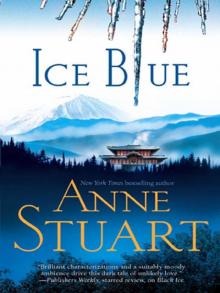 Ice Blue
Ice Blue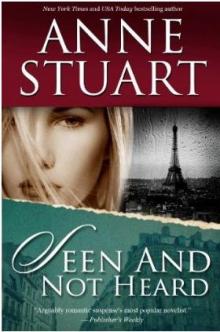 Seen and Not Heard
Seen and Not Heard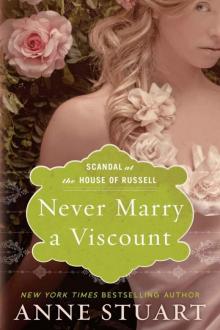 Never Marry a Viscount
Never Marry a Viscount Heartless
Heartless The Devil's Waltz
The Devil's Waltz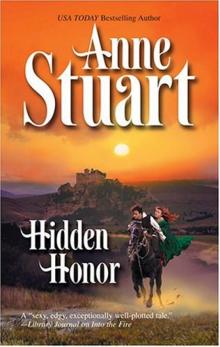 Hidden Honor
Hidden Honor Silver Falls
Silver Falls Fire and Ice
Fire and Ice Nightfall
Nightfall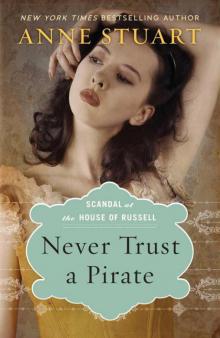 Never Trust a Pirate
Never Trust a Pirate The Soldier and the Baby
The Soldier and the Baby Still Lake
Still Lake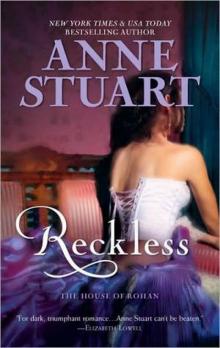 Reckless
Reckless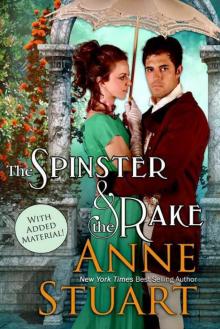 The Spinster and the Rake
The Spinster and the Rake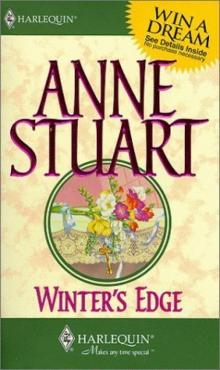 Winter's Edge
Winter's Edge At the Edge of the Sun
At the Edge of the Sun Into the Fire
Into the Fire Night of the Phantom
Night of the Phantom Ritual Sins
Ritual Sins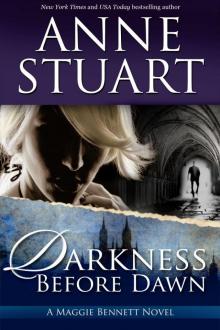 Darkness Before the Dawn
Darkness Before the Dawn Against the Wind
Against the Wind Ruthless
Ruthless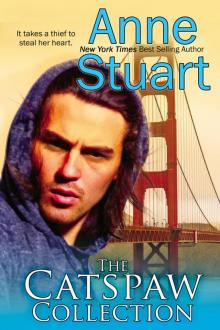 The Catspaw Collection
The Catspaw Collection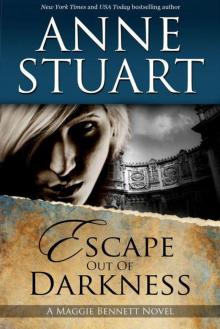 Escape Out of Darkness
Escape Out of Darkness The Widow
The Widow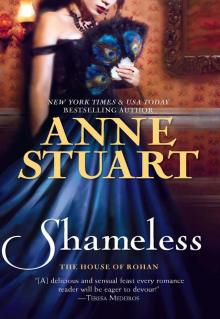 Shameless
Shameless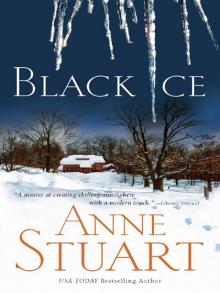 Black Ice
Black Ice Breathless
Breathless Shadows at Sunset
Shadows at Sunset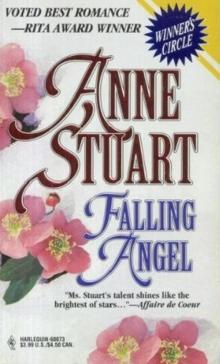 Falling Angel
Falling Angel Housebound
Housebound Cold as Ice
Cold as Ice The Wicked House of Rohan
The Wicked House of Rohan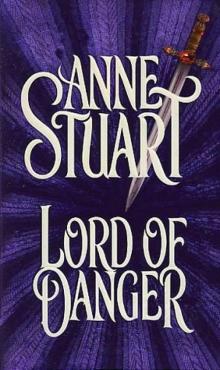 Lord of Danger
Lord of Danger The High Sheriff of Huntingdon
The High Sheriff of Huntingdon Wildfire
Wildfire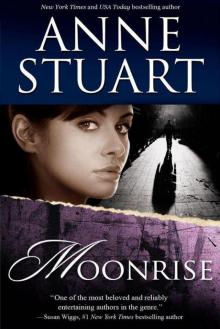 Moonrise
Moonrise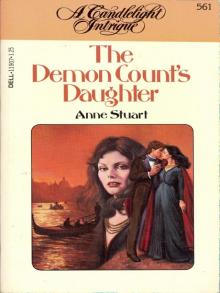 The Demon Count's Daughter
The Demon Count's Daughter Date With a Devil
Date With a Devil To Love a Dark Lord
To Love a Dark Lord Driven by Fire
Driven by Fire Special Gifts
Special Gifts Ice Storm
Ice Storm Shadow Lover
Shadow Lover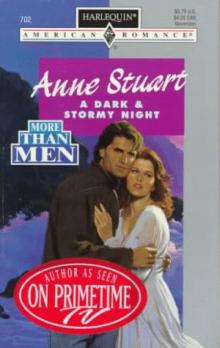 A Dark & Stormy Night
A Dark & Stormy Night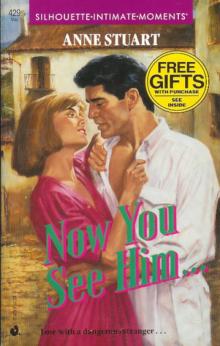 Now You See Him...
Now You See Him...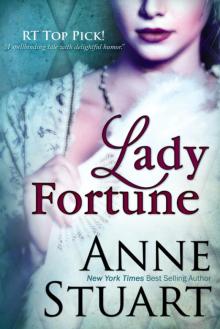 Lady Fortune
Lady Fortune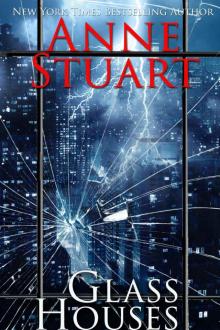 Glass Houses
Glass Houses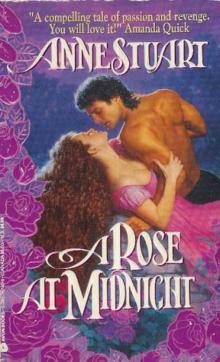 A Rose at Midnight
A Rose at Midnight Prince of Swords
Prince of Swords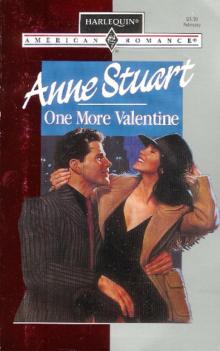 One More Valentine
One More Valentine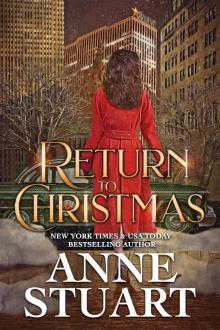 Return to Christmas
Return to Christmas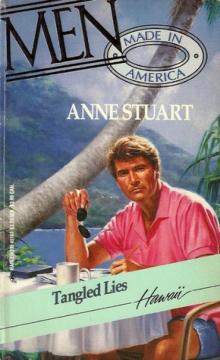 Tangled Lies
Tangled Lies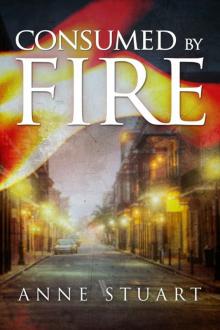 Consumed by Fire
Consumed by Fire The Fall of Maggie Brown
The Fall of Maggie Brown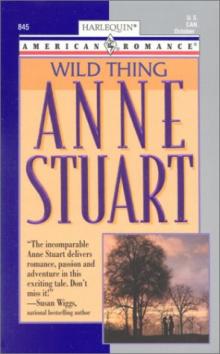 Wild Thing
Wild Thing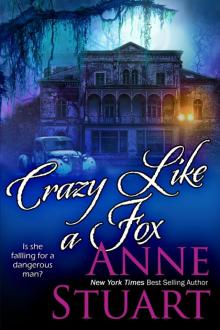 Crazy Like a Fox
Crazy Like a Fox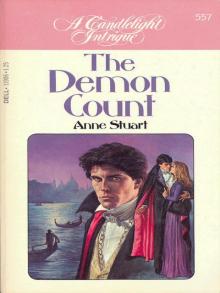 The Demon Count
The Demon Count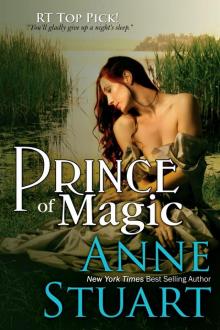 Prince of Magic
Prince of Magic Wildfire (The Fire Series Book 3)
Wildfire (The Fire Series Book 3)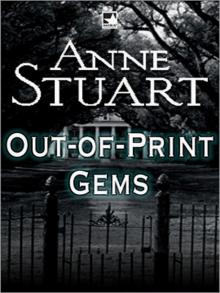 Anne Stuart's Out-of-Print Gems
Anne Stuart's Out-of-Print Gems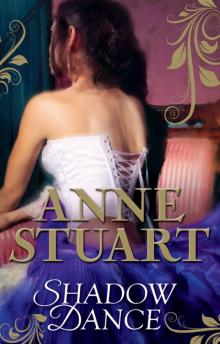 Shadow Dance
Shadow Dance Under an Enchantment: A Novella
Under an Enchantment: A Novella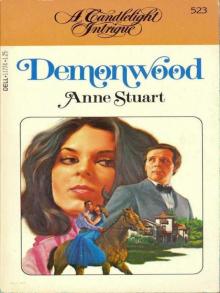 Demonwood
Demonwood Blue Sage (Anne Stuart's Greatest Hits Book 3)
Blue Sage (Anne Stuart's Greatest Hits Book 3)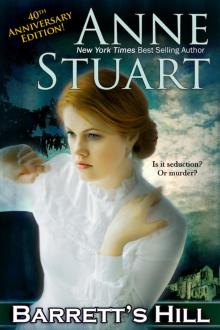 Barrett's Hill
Barrett's Hill Angel's Wings (Anne Stuart's Bad Boys Book 5)
Angel's Wings (Anne Stuart's Bad Boys Book 5)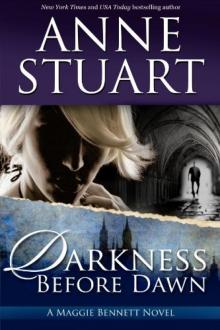 Darkness Before Dawn
Darkness Before Dawn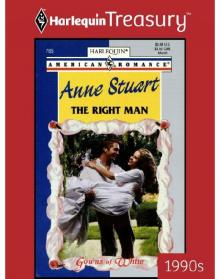 The Right Man
The Right Man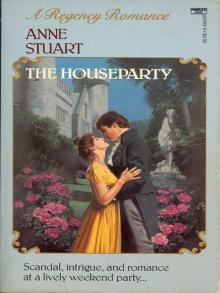 The Houseparty
The Houseparty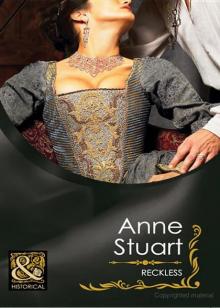 Reckless_Mills & Boon Historical
Reckless_Mills & Boon Historical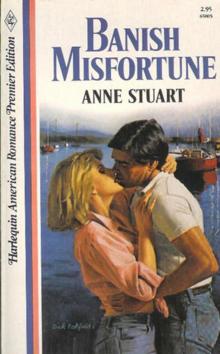 Banish Misfortune
Banish Misfortune Angel's Wings
Angel's Wings Chain of Love
Chain of Love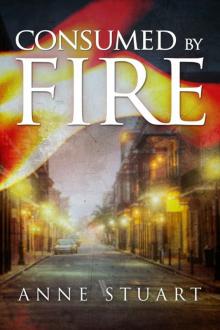 Consumed by Fire (The Fire Series)
Consumed by Fire (The Fire Series)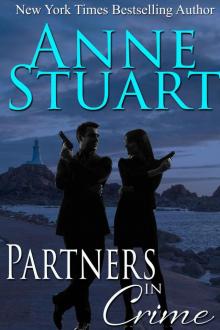 Partners in Crime (Anne Stuart's Bad Boys Book 4)
Partners in Crime (Anne Stuart's Bad Boys Book 4) The Soldier, The Nun and The Baby (Anne Stuart's Greatest Hits Book 2)
The Soldier, The Nun and The Baby (Anne Stuart's Greatest Hits Book 2)